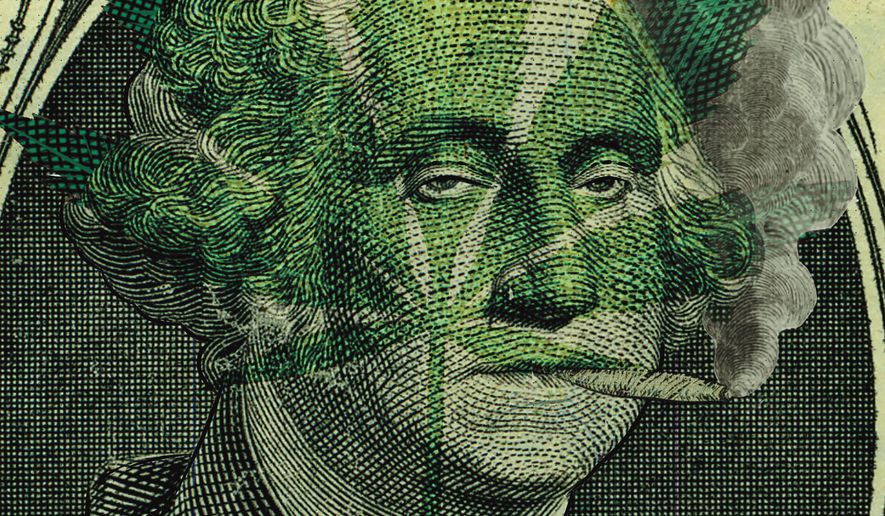The Biden administration’s recent move to reschedule marijuana from Schedule I to Schedule III has been drawing criticism from activists on both sides of the issue.
For those focused on science and medical efficacy, it’s a move that fails to recognize the growing body of scientific and medical data that shows today’s marijuana is more addictive and more harmful than that of previous generations. For pro-pot activists, the move comes up short of fully legalizing their wonder drug. It also does nothing to deal with criminal justice reform.
The move, however, has a clear winner: the cannabis industry. Companies such as Trulieve, Cresco, Canopy Growth and Cronos and their allies Big Tobacco and Wall Street will all see a boon from President Biden’s election-year “reform.”
Making marijuana a Schedule III drug would keep it illegal under federal law. Such a move would, however, permit marijuana companies to utilize Section 280E of the tax code, allowing the industry to deduct business, promotional and other expenses to advance drug sales. Companies would be permitted to advertise and promote kid-friendly THC-infused gummies, candies and drinks and deduct those costs as a business expense.
The commercial marijuana movement has proselytized it is about “medicine.” Which might leave some thinking the move to Schedule III makes sense. But the reality couldn’t be further from the truth.
Shanken News Daily’s cannabis newsletter recently reported that state marijuana sales “were up anywhere from 63% to 236% this 4/20 compared with a normal Saturday,” with “receipts from 4/20 totaling $83.6 million across six million units in the U.S. and Canada.”
The report added that “the states seeing the biggest 4/20 increases this year were Hawaii, Oregon, Florida, Maine, and Delaware, all at or near 200% above a typical Saturday.” Hawaii and Florida are medical-only states.
Furthermore, “Massachusetts set a single-day record of $8.5 million in sales, as the state’s all-time adult-use cannabis revenue passed $6 billion.” Sales of medical marijuana in Arkansas “nearly tripled the daily average … this year,” equaling 630 pounds of products for $2,113,198 in sales.
Do people who take any legitimate medicine suddenly increase their usage on one particular day? One wonders what kind of medical treatment oversight these “patients” received. Maybe it’s time we dispense with the pretense. The cannabis industry is about big money, and the Biden administration just potentially gave it a big gift.
These tax implications will fuel the industry’s pervasive approach to targeting new users, especially young people. The industry has already spent billions fueling misinformation campaigns that have driven down perceptions about the risks associated with marijuana usage. According to data from the Substance Abuse and Mental Health Services Administration, young people today overwhelmingly view cigarettes, alcohol and other drugs as riskier than marijuana.
Among the driving forces in THC drug sales is the explosion of the psychoactive drug-infused beverage sector. According to Shanken’s reporting, data showed cannabis beverage sales were “up 150% and retailers moving 200% more units than normal. The beverage category has been growing rapidly due to the emergence of the hemp-derived THC segment, which is expanding rapidly in various states like Minnesota and Texas.”
Beverages infused with hemp-derived delta-9 THC have emerged as crossover products, attracting a wide swath of consumers. According to recent reporting, THC-infused beverage sales were estimated at $1 billion in 2022, with projections for 2030 being approximately $3.9 billion.
The consumer group driving the growth of these drug-infused beverages is young people, with nearly 1 in 5 consumers being ages 18 to 34.
Because these ready-to-drink beverages operate in a legal gray area, THC beverage companies are taking advantage of interstate sales and standard banking and payment processing to rake in millions with consumers who, after years of being told THC is harmless, are failing to grasp the full range of consequences from their imbibing. THC can be addictive and, unlike alcohol, can produce psychosis, schizophrenia, and other devastating mental health consequences.
It’s never been clearer that so-called medical marijuana was a shrewd strategy to convince political leaders and users that today’s industrialized pot would be a benefit for society. Far from medicine and recreation, marijuana as an industry is willing to put return for investors ahead of public health.
The proposed rescheduling of marijuana will only help them in this quest.
H/T: www.washingtontimes.com
You can view the whole article at this link Cannabis industry is about money, not medicine



